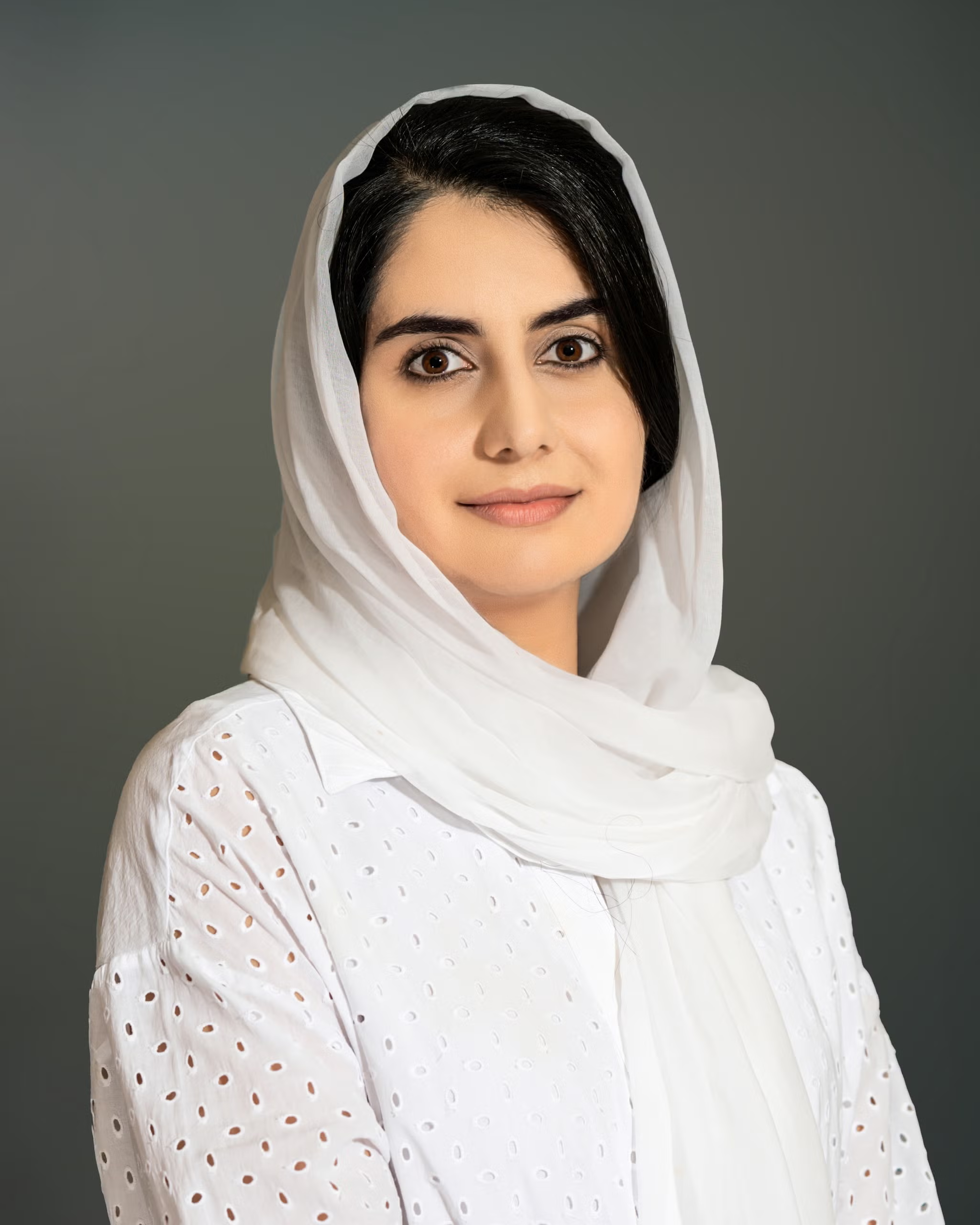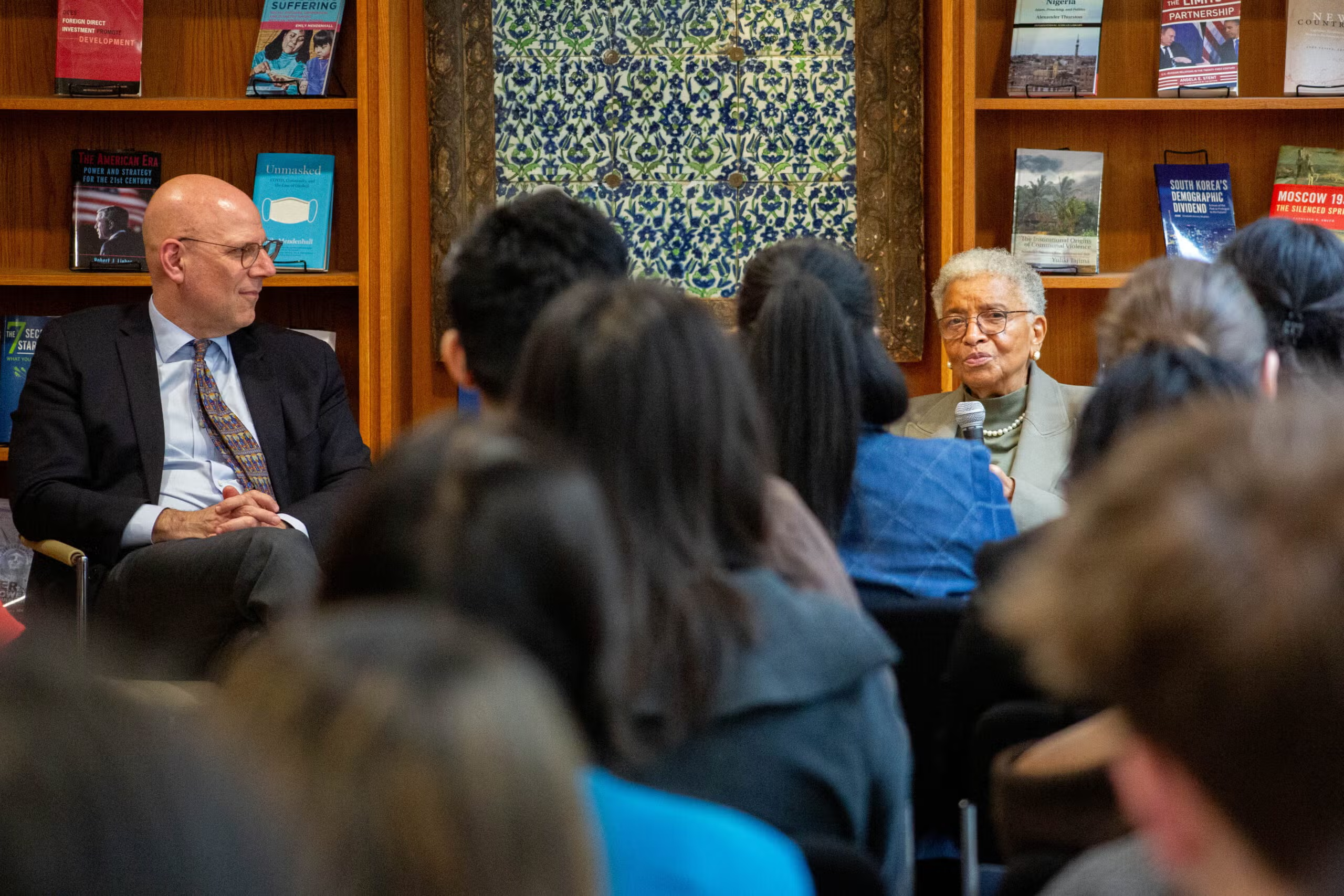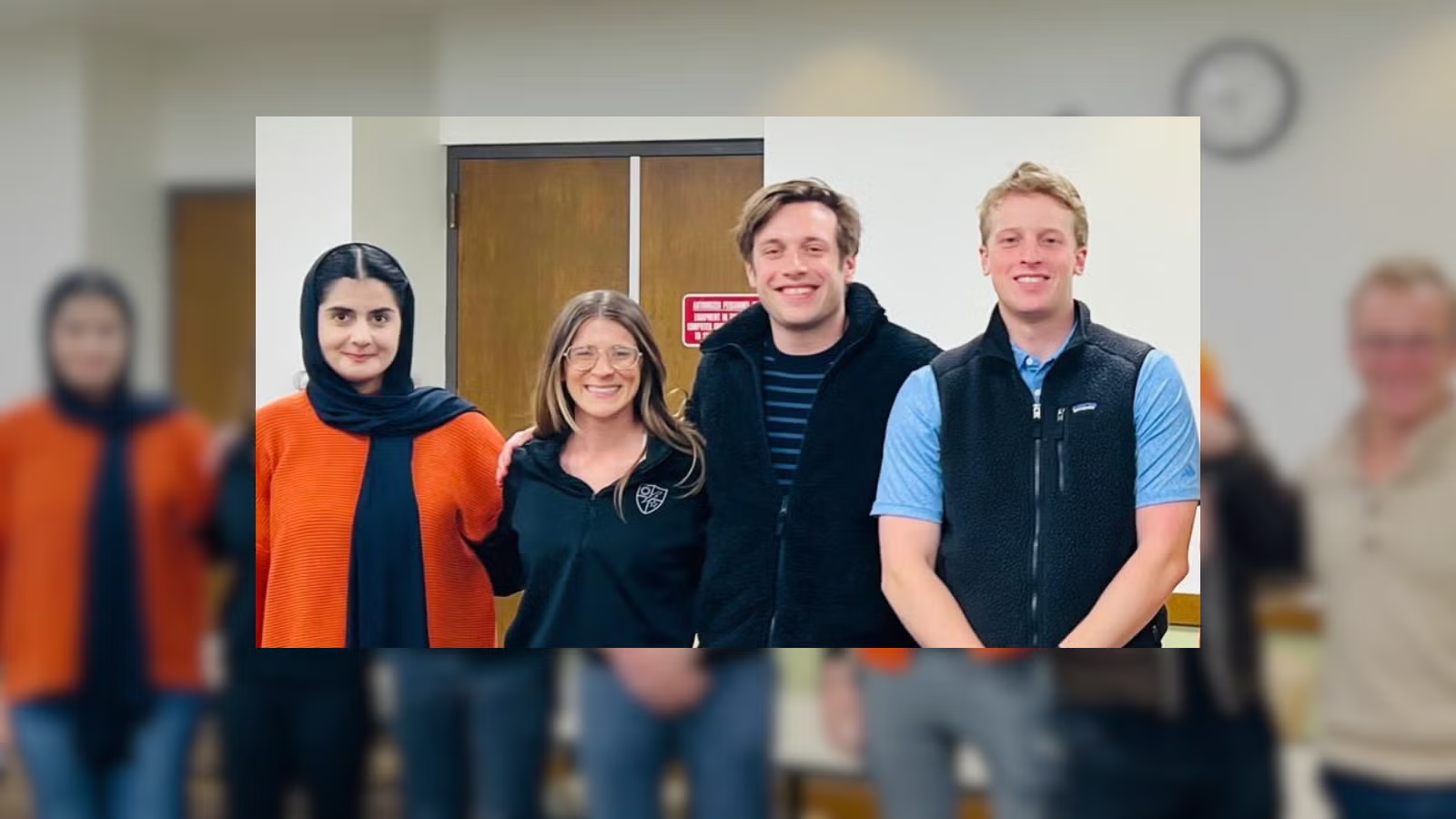
“It meant a lot to be in a space where I didn’t have to explain why Afghanistan matters to me—people just understood, and that made all the difference,” says Aria Wali (SSP’25). Wali came to the Security Studies Program (SSP) as a new resident of the United States from Afghanistan and at Georgetown, she pursued her graduate degree as an Al Thani Scholar concentrating on technology. She also earned a Women, Peace & Security graduate certificate from the Georgetown Institute for Women, Peace and Security.
Wali appreciated how much flexibility the Security Studies Program offered her. She worked full-time during her studies as a case manager for the U.S. State Department Office of the Coordinator for Afghan Relocation Efforts (CARE). Before coming to the United States, Wali had prior experience as a protocol assistant for the U.S. ambassador to Afghanistan and deputy chief of protocol to Afghan President Ashraf Ghani.
“It’s easy to assume the Security Studies Program is all about traditional defense or intel work, but there’s actually a lot of space to explore topics like cybersecurity, emerging tech, disinformation or even climate-related security issues. The program really lets you shape your own path, and there’s strong support for diving into less conventional areas,” Wali explains.
Wali found herself changing her initial focus on traditional security threats to how technology is shaping security: “Topics like cyber threats, AI, and the role of tech in global conflicts really grabbed my attention. It made me see security in a whole new light—not just about military power or borders, but also about how digital tools and innovations are influencing everything from diplomacy to warfare. Georgetown helped me expand my thinking and consider how technology will play a huge role in future security strategies.”
Driven to make a difference
Shared drive to make a difference was the throughline for the community that Wali found at SFS.
“People here aren’t just ambitious—they genuinely care about creating positive change, and that energy is contagious. It pushed me to grow both intellectually and personally,” Wali says. “There’s something special about being surrounded by people who are so passionate and driven, all working toward making an impact.”
Finding places where Wali could bring her full life experience was also an important part of how she felt most supported at Georgetown.

Wali’s favorite memory from her time was participating in a small, student-led roundtable on Afghanistan’s future: “It wasn’t part of any class—just something a few of us organized with a professor who cared deeply about the topic. What made it unforgettable was how personal it became. I shared my own firsthand experience working on the ground during the U.S. withdrawal, and for the first time in an academic setting, I felt like my story and perspective truly mattered. The room fell completely silent while I spoke—people weren’t just listening, they were connecting. That moment reminded me why I chose this path in the first place: to bridge lived experience with policy and purpose.”
Bridging theory and practice
Faculty and staff mentors were another important part of Wali’s community at SSP. She recognizes the impact of Alzbeta Findlay, director of academic affairs in the Security Studies Program, on her experience: “She was incredibly supportive, insightful, and always encouraged me to think more critically and confidently about my work. Her guidance had a lasting impact on how I navigated both my academic journey and professional development.”
Wali’s favorite class was Theory & Practice of Security, with Professor Kim Roberts, for both the content and the learning environment.
“It stood out to me because it combined real-world case studies with foundational security concepts, helping me better understand how theory applies to practical challenges in international affairs,” Wali says. “Professor Roberts also created a really engaging and thoughtful learning environment, which made the course even more impactful for me.”
Being a working professional did not keep Wali from engaging with opportunities on the Georgetown campus like the Dean’s Coffee Chat series, she explains: “Georgetown fosters collaboration across fields, especially when it comes to global challenges. The resources and events, from guest speakers to informal discussions, always kept things engaging and thought-provoking. It’s hard to pinpoint, but it’s that sense of being part of something bigger that I’ll miss the most.”
Wali advises incoming graduate students to SFS to explore genuine interests and connect with faculty, guest speakers and fellow students.
“Whether you’re into tech, intel, military operation, or a really niche topic, lean into it. That’s where the most rewarding experiences usually come from,” she says. “Take the time to connect with people. Go to office hours, attend events and don’t skip the coffee chats—even the ones that seem random or unrelated. Some of the most helpful advice and opportunities I found came out of those casual conversations. And seriously, learn from your classmates. They bring such a wide range of experiences, and that ends up being one of the best parts of the program.”
Intersection of security and technology
Looking ahead, Wali wants to work at the intersection of security and technology, particularly in areas like cybersecurity, conflict prevention and how emerging technologies can help address global security challenges.
“I’m especially interested in how innovations like AI and cybersecurity tools can be used to prevent conflict or protect vulnerable populations from new threats,” she says. “Georgetown has given me the skills, knowledge and connections I need to move forward in this field and work toward making a real impact in global security.”
